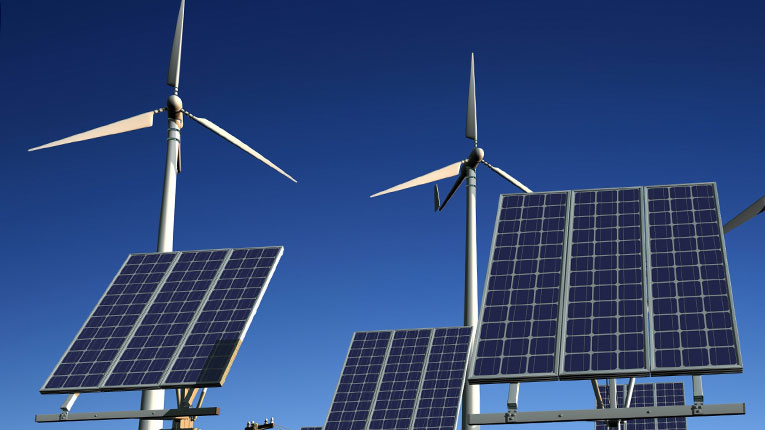The employers’ organization of the Romanian green energy producers PATRES asks the authorities to remove the barriers in the way of the development of new green production or storage projects.
“We draw attention to the fact that investments in renewables, financed by PNRR and the Modernization Fund, can be completed within the indicated term only if legal solutions are found to expedite approvals for investments in energy production capacities from renewable sources,” say PATRES officials.
At the same time, PATRES welcomes the decision of the President of Romania, Klaus Iohannis, to promulgate the Law amending and supplementing the Land Fund Law no. 18/1991 and other normative acts (PL-x 22/07.02.2022), which allows the construction of green parks on agricultural land.
“We appreciate the adoption by the Parliament – the Senate and the Chamber of Deputies – of the normative act that allows the establishment of photovoltaic parks on poorly fertile agricultural land. Romania will thus produce green energy on the less fertile lands, we have a legal framework for investments in photovoltaic parks on arable lands of the 3rd, 4th and 5th quality classes, located on the outskirts of the towns.”
“We appreciate the decision of the President of Romania and the legislative approach in the Parliament to support investments in energy from renewable sources. PATRES was actively involved, with amendments, to the draft law. It is important to mention, so that it is clear to everyone, that by adopting this normative act the way is opened for the dual use, including for renewables, of agricultural land and pastures. Practically, new renewable energy production capacities will be established, in accordance to the law, which will not affect the good exploitation of the meadows: the area occupied by permanent meadows can be used in a dual system both for animal grazing and fodder production, as well as for the production of electricity from renewable sources,” says Viorel Lefter, President of PATRES.
The normative act brings a series of clarifications that support investors. For example, it is stipulated that the definitive or temporary removal from the agricultural circuit of the agricultural lands located outside the village, as well as the forestry lands, is done at the time of the construction authorization, with the payment of the fees by the beneficiaries. The investor no longer has to pay the money up front and then find out that did not receive a building permit.
Another facility provided in the new law: The investor will receive the approval for the agricultural land for the location of the objectives within a maximum of 45 days from the registration of the request; exceeding the deadline is considered a tacit agreement.
Yet, a few issues are still in place
“It is a step forward, but – unfortunately – the proposal regarding the amendment to allow wind turbines to be placed on class 1 and 2 land was not adopted. Wind turbines, by definition, are located outside the city, and the wind source is limited, as is the grid, and now a new barrier appears in the development of these parks: the land class. All this, given that wind turbines take up less space compared to investments in solar,” says Martin Moise, First Vice-President of PATRES.
PATRES also appreciates the effort made by the team of experts of the Ministry of Energy for the successful implementation of the most important component of the PNRR on energy, which consists in increasing the production capacity from renewable sources. There is major interest from companies for financing through PNRR for investments in energy from renewable sources. The proof is the 668 applications for the installation of new E-SRE production capacities, announced by the Minister of Energy.
“We draw attention to the fact that these investments, financed through PNRR, can be completed within the indicated period (until June 2024) only if legal solutions are found to expedite the approvals for wind and photovoltaic parks. It is known that making an investment involves a series of stages, with the related documentation and bureaucracy, from feasibility studies, obtaining approvals and authorizations, to the actual implementation and commissioning of the investment objective. All these stages mean a long time, with the risk of exceeding the deadline of the PNRR investment implementation calendar and of losing funding. We became aware of the approach of the ministers responsible for revising the related legal terms by reducing the analysis periods in order to issue opinions. Concretely, it is proposed to issue the approvals in an emergency procedure, which requires the adoption of some legislative changes,” adds Viorel Lefter.
“PATRES continues its approach to the authorities and demands the removal of barriers to the development of new production or storage capacity projects. A restart in the area of renewables, i.e. the creation of a new investment cycle, can only be achieved if predictability is ensured for investors.”

